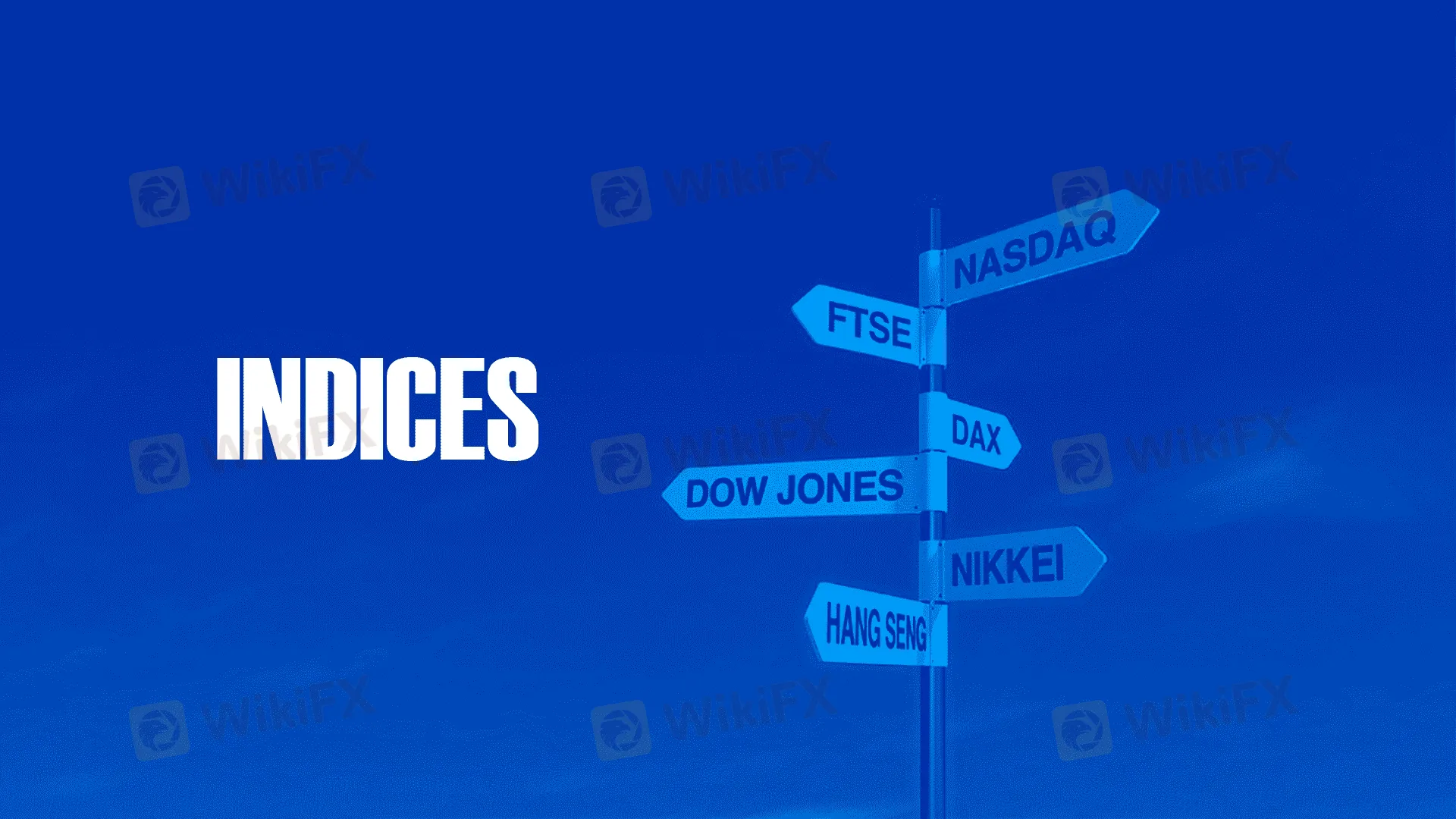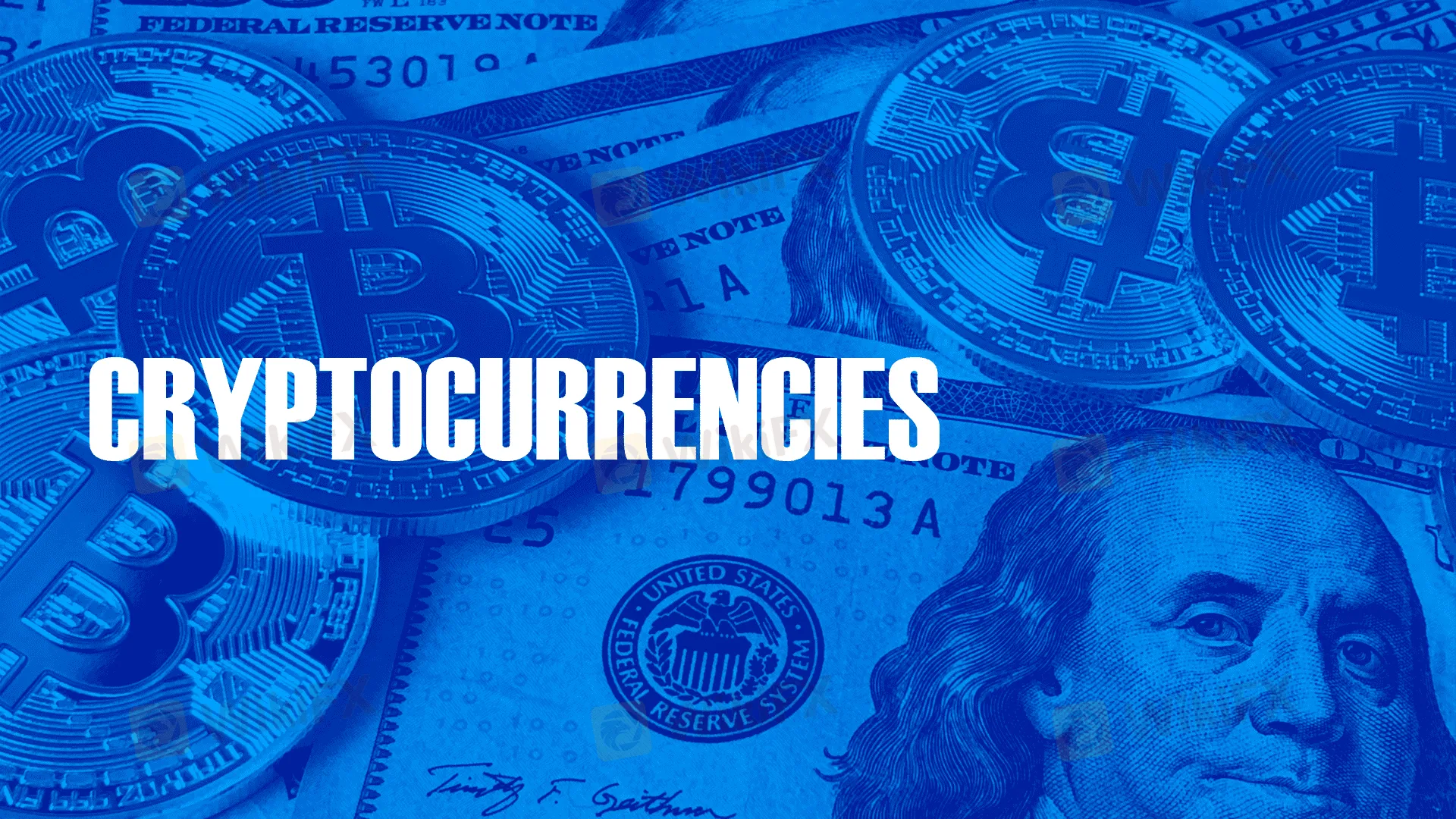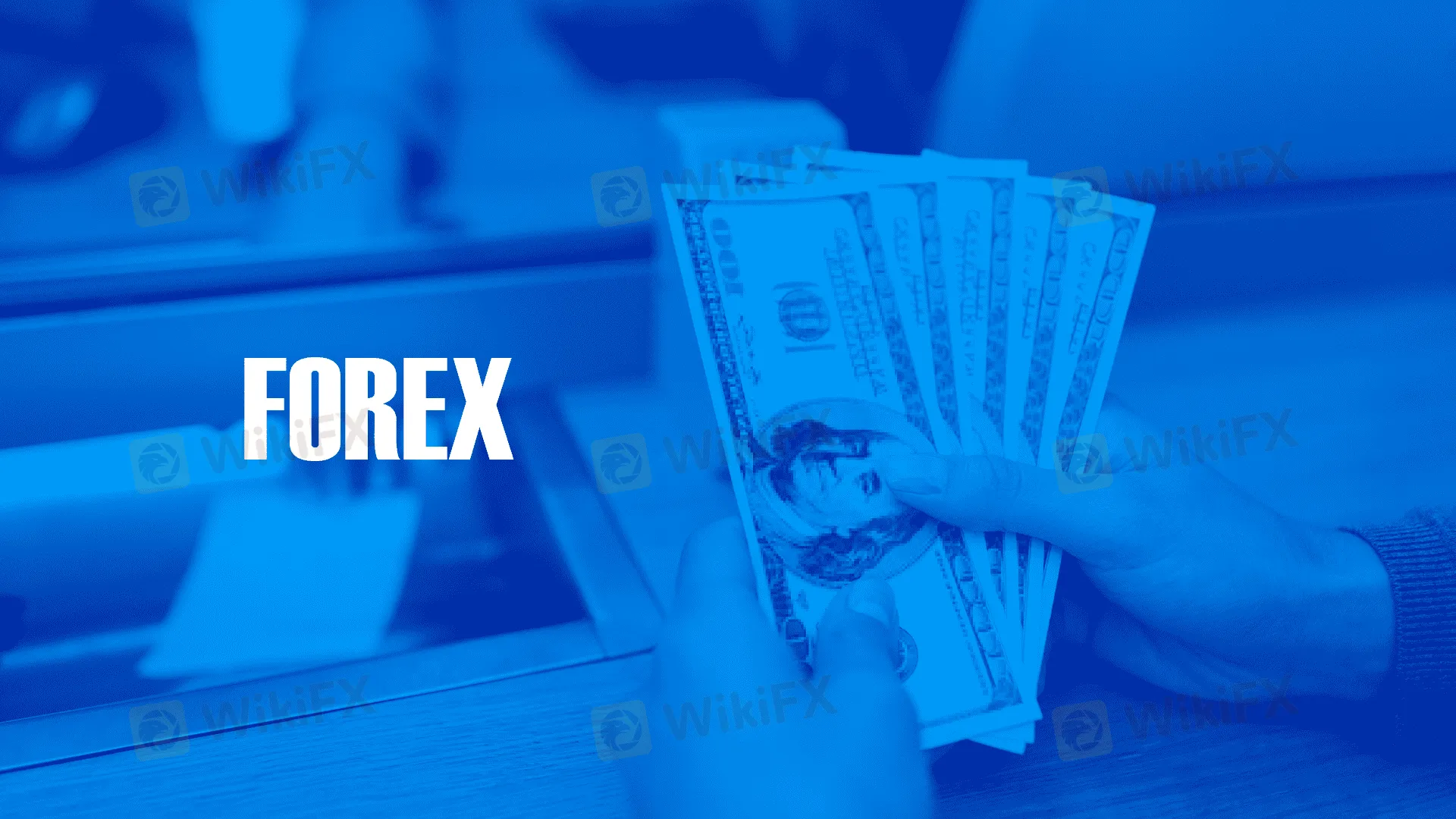Weekly News 2023/10/09-2023/10/13
Abstract:Index / Stocks / Crypto / Metals / Commodity & Futures / Forex

U.S. stocks ended mixed on Friday. The Dow rose 39.15 points, or 0.12%, to 33670.29 points; the Nasdaq fell 166.98 points, or 1.23%, to 13407.23 points; the S&P 500 fell 21.83 points, or 0.50%, to 4327.78 points. The S&P 500 posted its second consecutive weekly gain this week. The S&P 500 rose 0.45%, the Nasdaq fell 0.18%, and the Dow rose 0.79%. Traders focused on earnings reports from major banks and the situation between Palestine and Israel. One Fed official believes the Fed can keep interest rates “on hold.”
The U.S. 10-year Treasury yield fell 9 basis points on Friday to 4.621%. Treasury bond prices and yields move in opposite directions. Regarding the decline in U.S. bond yields, Christophe Barraud, chief economist and strategist at Market Securities LLP, said: “Bonds rebounded before the weekend as traders may want to hedge against geopolitical risks.” Bank of America strategist Michael Hartnett said that as long as the benchmark If the 10-year bond yield remains below the all-time high of 5%, then U.S. stocks can avoid a bleak outlook. In this case, the S&P 500 index can continue to remain above 4,200 points in the short term.
Investors welcome earnings reports from a number of financial companies on Friday. JPMorgan Chase and Wells Fargo released their financial reports, thus kicking off the third fiscal quarter earnings of large financial companies. JPMorgan Chase's earnings and revenue beat expectations. Wells Fargo's performance exceeded expectations and it raised its guidance again. Citigroup's revenue topped market expectations.
In addition to bank financial reports, investors are also paying attention to the latest developments in the Palestinian-Israeli conflict, fearing that the escalation of the conflict may threaten global oil supply and price trends.

Tesla (NASDAQ: TSLA) website shows that Tesla officials have recently adjusted the local referral reward policy car buyers can order Tesla S, 3, X, and Y models through referrals from friends. The referral reward that can be obtained has dropped from the previous $500 to $250; the referrer's 10,000 point reward remains unchanged.
Microsoft (NASDAQ: MSFT) completed its $69 billion acquisition of Activision Blizzard (NASDAQ: ATVI). Previously, Microsoft had been fighting with global regulators for nearly two years to complete the transaction. With the largest-ever acquisition in the video game industry, the Xbox console maker has strengthened its competitiveness and jumped from fifth to third in the global rankings, behind Tencent Holdings and Sony group. Microsoft executives had previously underestimated the intensity and duration of antitrust objections, forcing the software giant to extend the deal deadline by three months. What followed was a remarkable turn of events, and the deal was finally completed.
Google (NASDAQ: GOOGL) said on Thursday that it will provide compensation measures to users of generative AI systems on platforms such as Google Cloud and Workspace if they are accused of infringing intellectual property rights.
Citi‘s (NYSE: C) third-quarter revenue was higher than market expectations. JPMorgan Chase’s (NYSE: JPM) net interest income reached a new high in the third quarter and it also raised its full-year forecast. The company's adjusted revenue in the third quarter was $40.69 billion, higher than analysts' expectations of $39.63 billion. Diluted earnings per share were $4.33, higher than analysts' expectations of $3.96.
Wells Fargo's (NYSE: WFC) third-quarter results exceeded expectations. The company's third-quarter revenue was US$20.86 billion, compared with market estimates of US$20.16 billion; earnings per share were US$1.48, compared with market estimates of US$1.25.

The worlds largest cryptocurrency Bitcoin is up 3.08% this week by market capitalization has been trading below $30,000 since August 9, according to CoinMarketCap. Ethereum, the world's second-largest cryptocurrency, rose 0.21% for the week to $1,628.
German banking giant Deutsche Bank has partnered with Swiss cryptocurrency firm Taurus to provide Bitcoin and cryptocurrency custody solutions to institutional clients, the Swiss firm announced on Thursday. This means that for the first time, the $1.3 trillion asset manager will be able to hold limited amounts of cryptocurrencies on behalf of clients and offer tokenized versions of traditional financial assets.
Bitcoin rose to a weekly high of $26,750 on Friday, boosted by the announcement from Germany's largest bank, said Phillip Lord, president of crypto payments app Oobit.
On Friday, the U.S. Securities and Exchange Commission (SEC) appealed a July summary judgment that said Ripple violated securities laws by selling XRP to institutional investors, but not by selling XRP to retail investors on a public exchange. Jonas Betz, a cryptocurrency market analyst and founder of consulting firm Betz Crypto, told Forkast: “The SEC seems very unhappy with the summary judgment and is trying to use all means to get it in its favor. ruling.” “Trying to challenge decisions is a common legal process, but in my opinion it will go nowhere in this case. The XRP token may see higher volatility in the coming weeks, but investor sentiment is not likely to drop significantly.”
While the SEC's appeal was not a surprise, investor confidence took a hit, sending Bitcoin to a weekly low of $25,060 on Monday, three days after the agency took legal action.

After hitting a seven-month low on Friday, Gold had its biggest weekly gain since mid-March. Prices are more than $90 per ounce higher than last week's closing price, with December gold last trading at $1,941.50 per ounce, up more than 6% from last week's lowest point. Silver's fortunes have also taken a major turn, with the precious metal expected to rise by more than $1 an ounce this week, with December silver futures last trading at $22.895 an ounce. Silver prices are up 9.5% from last week's low below $21 an ounce.
Gold and silver saw sharp gains over the weekend as demand for safe havens increased due to the Israeli-Palestinian conflict. Analysts say that with growing chaos in the Middle East and the crisis between Russia and Ukraine, investors are making sure they are protected against anything that could happen over the weekend.
The United States announced on Friday that it would tighten restrictions on Russian crude oil exports. Affected by this, oil prices rebounded. Some analysts have noted that continued gains in oil prices could increase safe-haven buying of gold as a hedge against stubborn inflation.
Edward Moya, senior market analyst at OANDA, said he also believes safe-haven demand will push gold prices higher in the short term. “Given that monetary policy is sufficiently tight and a surge in energy prices could easily choke the global outlook, the need for safe-haven assets becomes even more apparent,” he said in a note. “Investors are fleeing to safe havens as the risk of tensions in the Middle East increases,” said Edward Moya, senior market analyst at OANDA. If the political situation becomes more pessimistic, there is a good chance that gold prices will rise to the $2,000/ounce level this year.

Global inventories are expected to fall in the fourth quarter after the United States tightened sanctions on Russian crude oil exports, exacerbating supply concerns in an already tight market. Oil prices have continued to fluctuate since the Israeli-Palestinian conflict. Oil prices rose nearly 6% on Friday, with Brent crude recording its highest weekly gain since February this year. Brent futures and U.S. West Texas Intermediate (WTI) both posted their highest daily percentage gains since April. Brent crude also rose 7.5% for the week, its biggest gain since February. WTI is up 5.9% for the week.
Although neither Palestine nor Israel is a major oil-producing country, the conflict in the Middle East will have little impact on global oil and gas supply. However, investors and market watchers are assessing how the situation escalates and what that could mean for supplies from countries surrounding the world's largest oil-producing region.
The Organization of the Petroleum Exporting Countries (OPEC) this week maintained its forecast for global oil demand growth, citing signs of resilience in the world economy so far this year and expecting further growth in demand from China, the world's top oil importer.
Strategists at Toronto-Dominion Securities said, “The risk premium imposed by the current situation leads us to predict that WTI crude oil prices will exceed the $90/barrel mark in the final quarter of the year, while Brent crude oil prices will close to the triple-digit mark. But for now, we do not think oil prices will surge significantly above $100/barrel because we expect OPEC+ to continue supplying crude oil at planned levels and we judge that the conflict will not cause disruptions in crude oil transportation.”

As U.S. inflation data significantly exceeded expectations, the U.S. dollar posted its largest single-day gain since March 15, while EUR/USD fell 0.85% to $1.0527. A report released by the U.S. Department of Labor on Thursday showed that the consumer price index (CPI) rose by 0.4% month-on-month in September, with housing costs rising by 0.6%, accounting for more than half of the increase. While many people are dismissive of rising rents, others have concluded that the Fed's mission of lowering inflation to its 2% target isn't done yet. That raises the prospect that the Fed will keep interest rates high for some time. Some institutional analysts even believe that the Federal Reserve may still raise interest rates again, most likely in December. Although recent inflation data (PPI, CPI) have declined slightly year-on-year, they cannot change the Fed's insistence on maintaining high interest rates for a period. On the contrary, the economic situation of major economies such as the Eurozone and the United Kingdom, is at risk of falling into recession. Therefore, the interest rate increase cycle in the regions is very likely have come to an end.
GBP/USD fell 1.15% to 1.2174 on the back of better-than-expected U.S. inflation data. Data released in the UK on Thursday showed that the British economy achieved partial recovery in August after experiencing a sharp decline in July, but after last year's surge in inflation and 14 consecutive interest rate hikes by the Bank of England, the overall economic situation remains It's growth that's weak.
USD/JPY rose 0.43% in late trading to 149.81, approaching the 150 warning mark again. The dollar's recent weakness has been driven by lower bond yields as the Federal Reserve eased its stance on future interest rate hikes, driving a rebound in bond prices.
OnePro Special Analyst
Buy or sell or copy trade crypto CFDs atwww.oneproglobal.com
The foregoing is a personal opinion only and does not represent any opinion of OnePro Global, nor is there any guarantee of reliability, accuracy or originality in the foregoing.
Forex and CFD trading may pose a risk to your invested capital.
Before making an investment decision, investors should consider their own circumstances to assess the risks of investment products. If necessary, consult a professional investment advisor.
Read more

Weekly News 2024/02/26-2024/03/01
Index / Stocks / Crypto / Metals / Commodity & Futures / Forex

Weekly News 2024/02/19-2024/02/23
Index / Stocks / Crypto / Metals / Commodity & Futures / Forex

Weekly News 2024/02/12-2024/02/16
Index / Stocks / Crypto / Metals / Commodity & Futures / Forex

Weekly News 2024/02/05-2024/02/09
Index / Stocks / Crypto / Metals / Commodity & Futures / Forex
WikiFX Broker
Latest News
Retail Trading Momentum Extends into 2026, Reshaping FX and CFD Activity
Stock Trading Guru Scams Contractor Out of RM1.2 Million with ‘Guaranteed Profits’
FX SmartBull Regulation: Understanding Their Licenses and Company Information
CONSOB Blocks Five More Unauthorised Investment Websites as Online Scam Tactics Evolve
Neptune Securities Exposure: Real Forex Scam Warnings
1,789 Victims, Nearly $300 Million Lost: Gold High-Return Scam Exposed
Admiral Markets Review: Regulation, Licences and WikiScore Analysis
UPFOREX Regulatory Status: A 2026 Deep Dive into Its Licenses and Risks
HKEX Profit Surge Signals Massive Chinese Capital Inflow and Asian Market Resilience
Clone Broker Alert: Darwinex, AIM & Spreadex Targeted
Rate Calc

